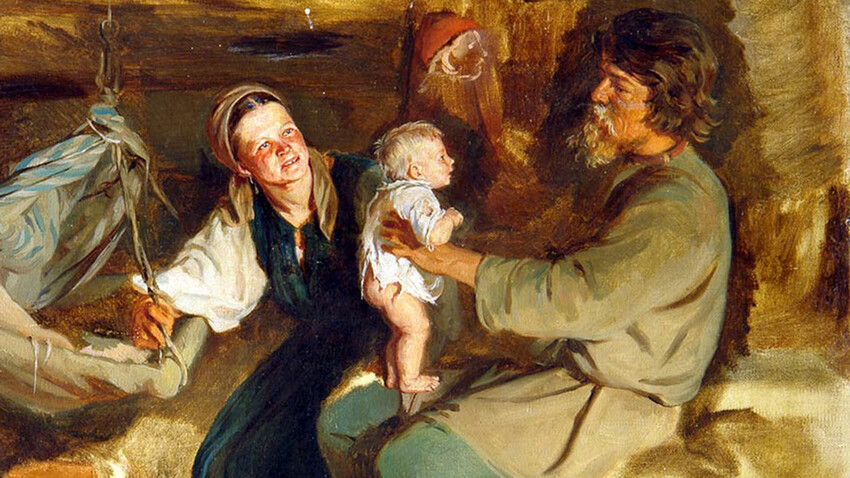
"The Joy of Parenting" by Kirill Lemokh, 1910 or earlier
Kirill LemokhRussian peasants hardly knew any calendars before the revolution – they simply lived their lives according to church holidays and fasts. They also greatly feared that the village priest would impose penance on them for not observing the fast and even more – that he would excommunicate them from church, so they tried to observe the fasts and other church rules.
There are four big lents in an Orthodox year: the Great Lent – 48 days before Easter (one and a half months in March-April), Peter’s Lent – from the 57th day after Easter till July 12, the Dormition Lent – from August 14 till August 27, and the Christmas Lent – November 28-January 7.
In a Russian village, the observance of the fasts was monitored not only by the church, but also by the peasant community itself. Foreigners visiting Russia were surprised that peasants did not sell them any eggs or milk during the fasts. Additionally, writes historian Elena Sennitskaya, travelers were struck by the fact that Russians preferred to die of illness rather than take a medicine that broke the rules of fasting. Russian doctors took an oath not to give medicines containing meat, eggs, milk or butter on Lenten days.
READ MORE: Sex in Medieval Russia
But, most importantly, sexual intimacy was strictly forbidden during all major fasts. Therefore, in Russian villages, the peak of fertility occurred in two months: June (children conceived in September-October after the Dormition fast) and January-February (children conceived in May-June after the Great Lent). It should be noted that in mid-summer, during the period of heavy field work, conception was almost non-existent.
If using any of Russia Beyond's content, partly or in full, always provide an active hyperlink to the original material.
Subscribe
to our newsletter!
Get the week's best stories straight to your inbox